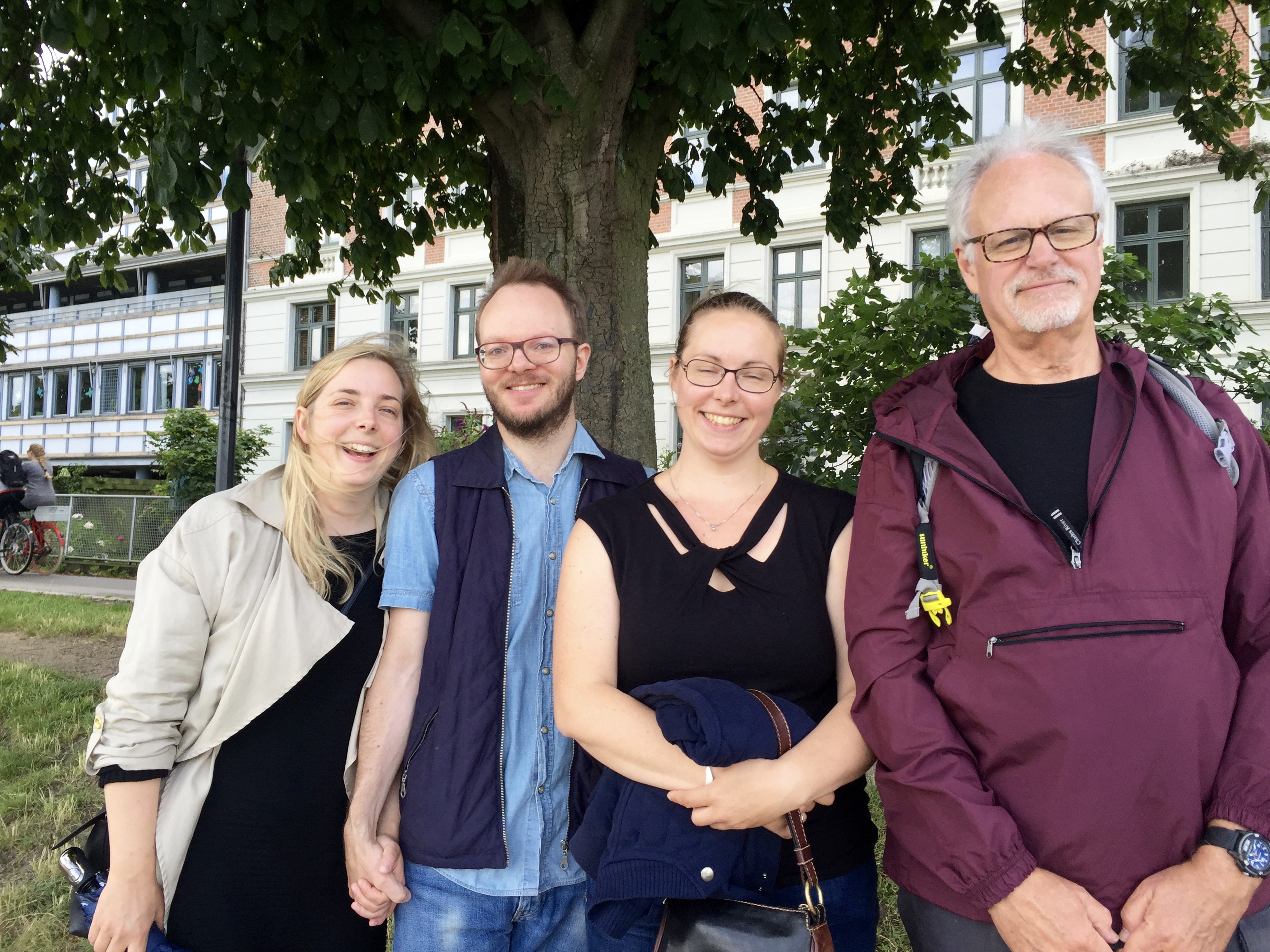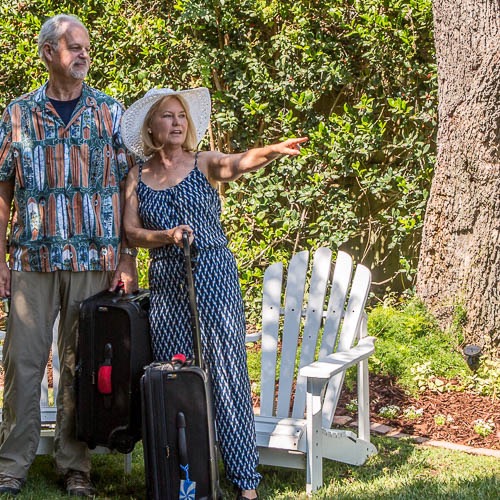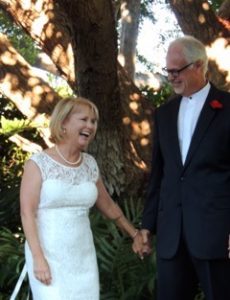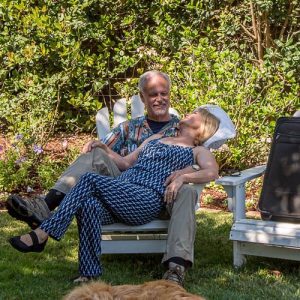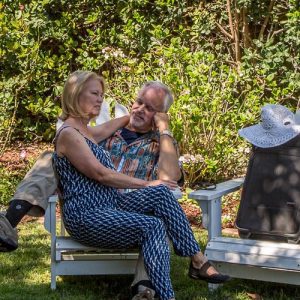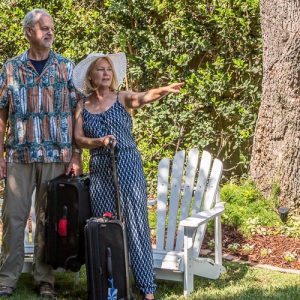Copenhagen
Today’s post is about Vesterbro, an incredible neighborhood enveloping trendy cafes, prostitutes, art galleries, drug addicts, children’s parks, homeless shelters, coffee houses and sex shops. From the Queen’s point of residence, it’s on the wrong side of the tracks. It’s also the hottest hipster hangout. More importantly, today’s post is about what I learned from Kristine, Elizabeth and Jonathan. Their compassionate, fresh, embracing attitudes about where they live and how they live made me realize that I carry from home some predispositions that need dusting off.
Kristine, Martin’s distant cousin, lives In Vesterbro with her boyfriend Jonathan. She was eager for us to experience this unique section of the city, and she was right when she said we probably would not venture there on our own. Her sister Elizabeth came from Odense to join us, and later Kristine’s boyfriend Jonathan, so we had three enthusiastic, articulate young tour guides to show us what the tourists don’t see and the older folks probably don’t know about.
Vesterbro is on the other side of the train tracks from the royal palace . It’s also the hottest hipster hangout. The street where Kristine lives straddles two lives. During the day, it is the province of mothers carting children to school on their bicycles, shoppers and lunching locals. We pass window displays of more dildo makes and models than I ever knew existed. Nightclubs promise strip teases, table dances, and lap dances, and more – all in English (the favored language of learning and fashion). At nightfall, the prostitutes lounge against the walls of the stately old buildings – but on only one side the street. It was a relief to see Kristine’s apartment was on the other side of the street. Remarkably, Kristine feels safe in her neighborhood. You just have to know the correct social conventions: Don’t make eye contact and stay on the correct side of the street. There is evidently more to it than that, for Elizabeth still has not learned enough etiquette to feel safe alone on Kristine’s street.
As we entered Kristine’s apartment, she pointed out that at night, there are usually several drug addicts hanging out at the building entrance. They know her, and just politely step out of the way. Kristine seemed much more concerned on our behalf about the steep steps up to the top floor of the building. No problem!
Americans, you may be wondering about Kristine. Banish your preconceptions! She has long blonde hair, fresh complexion and exudes girl-next-door wholesomeness. Elizabeth, too, a beautiful young mother of two tow-heads. Kristine has an art degree from the University; Elizabeth has a PhD in linguistics and teaches University English. Kristine happily lives here by choice and relishes the diversity.
Her apartment was charmingly cluttered with the useful and the whimsical. Sunlight streamed in through skylights and dormer windows. Looking out the living room window, across the street was a handsome brick building sporting a sex shop on the ground floor. Across the other street was a trendy roof-top garden. Catty-corner stood another centuries-old building that provides shelter for addicts, along with on-duty nurses who administer “safe” doses to the local addicts.
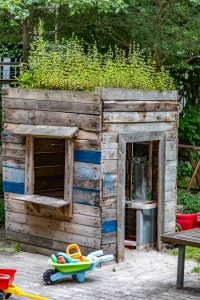
In the center courtyard, raised beds grew vegetables and flowers, and doubled as picnic benches and a children’s playhouse. As we exited to the street, Kristine pointed out two handwritten signs, one in English and one in Danish. They alerted the residents about the bloody needles found in a child’s stroller, so be sure to check before plopping junior in for a ride.
I had a deliberately muted, horrified reaction. Kristine was totally composed. She expressed compassion for the addicts, who meant no harm and simply sought a quiet place to relieve their distress. Elizabeth talked sympathetically about the clash between those who were in the neighborhood first, the addicts, and the newcomers with young families who wanted to change things. We certainly can think of many American neighborhoods that have become gentrified, and the costs to those who are forced out of their neighborhoods. Kristine wants them to stay. She has an extraordinary sense of compassion and fairness. Not just that. She relishes the diversity and sees it as no threat to her own ambitions and wellbeing.
We headed out first of all to the meat-packing district. Slaughter houses have morphed into furniture dealers, fragrant food stalls, art galleries, beer bars and restaurants. We had organic salads, a popular alternative to what used to be.
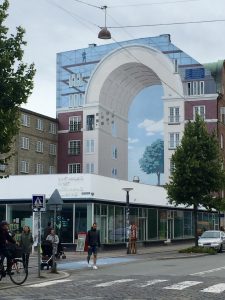
Public art pops up in unexpected places. What is real? Is that an arch, or a wall? Are there windows and people waving down to us?
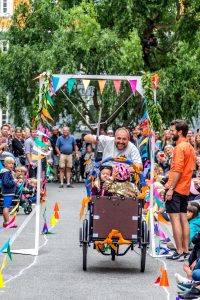
On Saturday afternoons in summer, a modern-day version of the ancient Jutland ring-spearing contest draws an exuberant crowd of beer-swigging locals to an otherwise sedate residential cul de sac. You would never know it was there—unless you have friends on Facebook who ring-joust. Bicycles, decorated with crepe paper streamers, now replace horses. We held our breath every time a less-than triumphant and slightly inebriated rider flamboyantly dismounted his metal steed, casually brandishing a truly sharp lance amidst the onlookers. Not a drop of blood was lost.
A claim to fame that most tourists don’t know about is in Vesterbro: It is the world’s smallest hotel. It has one room, above an equally small and charming coffee house. Definitely the hotel I want to joust for the next time I come to Copenhagen.
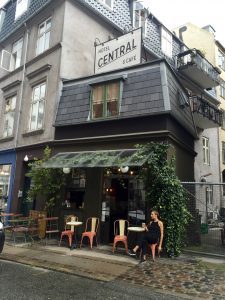
A claim to fame that most tourists don’t know about is in Vesterbro: It is the world’s smallest hotel. It has one room, above an equally small and charming coffee house. Definitely the hotel I want to joust for the next time I come to Copenhagen.
We went to a very different coffee bar that a tourist would never find. It would not be found because it has no name. A tourist would pass it by because it has absolutely no street appeal. Locals love it, and devotedly patronize it. We had a long chat there and had the best coffee I’ve ever tasted. The shop now has a sign, a concession to the times: It reads “Navnlus”, “nameless” in Danish.
We walked and talked all day, with these two friendly sisters and congenial boyfriend, who joined us later in the afternoon. We strolled through the rain along the four lakes in the city, we looked for hipsters on the bridges, we walked through the botanical gardens, we visited the friendly Vesterbro children’s park. We paused often and we talked.
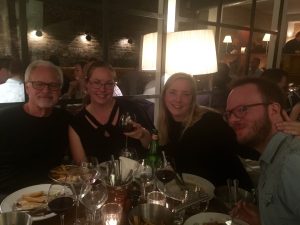
We ended our day at Madklubben, a trendy and lively restaurant that served terrific cooked-t0-order and to-die-for flank steak in an upscale, cosmopolitan atmosphere.By the end of the day I knew that these delightful, intelligent people had something special. They lived in a neighborhood that at home I would label as undesirable. They love its lively character, its diversity. They live in harmony with all that is there. Jonathan feels so fortunate to own his sunny, top-floor, corner apartment with a view of the neighborhood he grew up in and has lived in for twenty years. Kristine loves where she is. With such generous nature, she let us in on her secret to happiness. It is absolutely precious. We should bottle it. But we can’t sell it. Each person has to find it and somehow hold onto it. It might be called contentment. But the elixir has more complexity than that. It is infused with gratitude, a dosage of humility, a sprinkling of playfulness, sweetened with compassion and clarified with open-mindedness.
